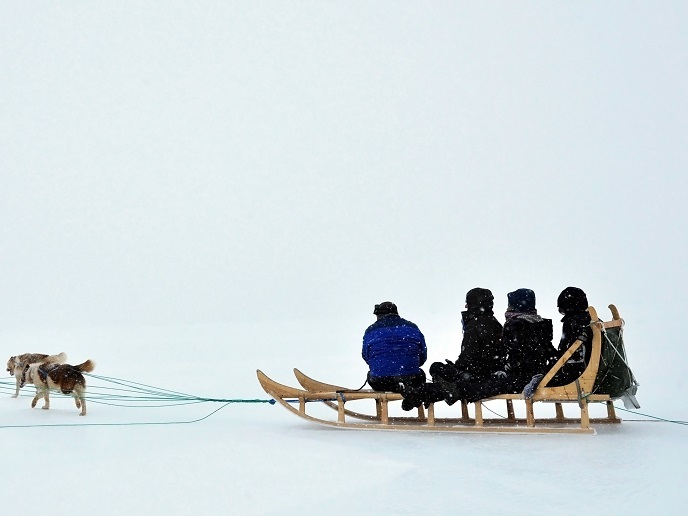Ensuring Arctic development is fair, as well as sustainable
The Arctic region has long been viewed as a frontier for the pursuit of valuable resources, from whaling expeditions to oil and natural gas exploration. Alongside fisheries and tourism, it is now of increasing interest for climate transition efforts, alongside emerging industries such as data centres. Yet, already facing challenges such as depopulation, these interests introduce unique threats. Land use is often disputed, with competition between traditional livelihoods, ecotourism, carbon capture, mining, renewable energy and railroads. The JUSTNORTH(opens in new window) project sought to ensure that the Arctic economies, environments and societies develop justly, ethically and sustainably. “Most viability assessments prioritise profitability, technical feasibility and regulatory stability – sidelining environmental and social aspects,” says Corine Wood-Donnelly, the project’s scientific coordinator. “Even renewable energy production is premised on prior exploitation of finite resources.” JUSTNORTH focused on protecting the rights of Indigenous and Arctic communities while ensuring that they are meaningfully engaged in decisions about their homeland’s future.
Listening to and learning
Undertaking interviews and workshops, JUSTNORTH conducted 17 case studies investigating the barriers, risks and costs of economic development, alongside the opportunities, benefits and pathways for sustainable development. The team worked with political, economic and community-based stakeholders and rightsholders, using participatory techniques to explore values and justice issues viewed from the perspective of both: transitions, scale and distribution, and participation and governance. Some case studies focused on one type of economic activity in several Arctic locations, while others examined the overlaps between activities in a single location, yielding insights across a range of themes. “We gathered first-hand confirmation of climate change’s increasing visibility and harm, with a clear appetite for long-term political and local community action,” explains Wood-Donnelly. Colonialism was found to have left a legacy of displacement and discrimination perceived to continue, as human rights are compromised for the green transition, exacerbating distrust in the political process. Allied with this was the perception that globalisation benefits big corporations, with local communities dependent on one major industry while facing the consequences of industrial expansion. “Many stated that while the Arctic is viewed as a solution to energy production and raw materials, profits go elsewhere, reinforcing a sense of exploitation,” adds Gustav Sigeman, JUSTNORTH project manager. Along with this were thoughts about the pressure to meet energy, food and tourism demands, often leaving communities with inadequate resources for themselves. “The Arctic is often wrongly considered an empty arena, but it is actually a contested space for land rights, land and resource use,” says Wood-Donnelly.
Ensuring fairness for current and future generations
JUSTNORTH’s research offers fresh insights into social injustices, both identifying challenges and suggesting solutions, useful to the European Green Deal(opens in new window) and the EU’s Arctic policy(opens in new window). “Supporting the green transition depends on whose lives are affected and to what degree. There will be losers and winners when wind farms cover land currently used for other purposes,” notes Sigeman. For this reason, policymakers were engaged in participatory activities, such as policy labs, where key recommendations were discussed. To support these efforts, JUSTNORTH is developing a digital negotiation tool, JUSTscore, to help communities map how their values and interests could be affected by small- and large-scale investment plans. “It will help redress the current power imbalance between those making decisions and those living with the consequences,” remarks Wood-Donnelly. The tool is complemented by two databases, one of bibliographic justice-related materials, the other on Arctic regulatory and policy documents. Additionally, a documentary will share snapshots about hopes for the future from local communities and industries in northern Canada, Finland and Iceland.







